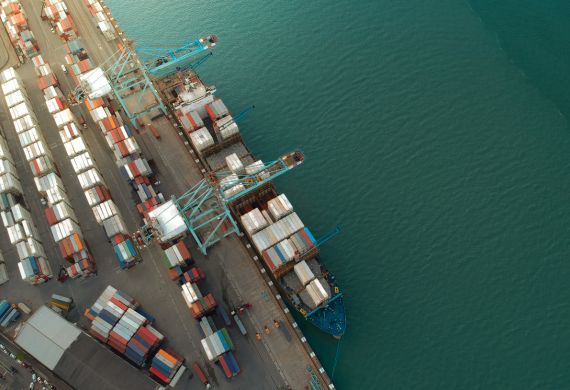What is the Angola CNCA Certificate?
A CNCA Certificate is essential for shipping goods to Angola, acting as a loading certificate required for customs clearance. It ensures compliance with local regulations, facilitates smoother customs processes, enables cargo tracking, and helps protect revenue by preventing fraud. Exporters must obtain this certificate before the shipment arrives in Angola to avoid fines, delays, or cargo rejection.


Why Do You Need It?
You need a CNCA Certificate for shipping goods to Angola to:
- Comply with Angolan import regulations: It's a legal requirement for all cargo entering the country.
- Ensure smooth customs clearance: The certificate pre-validates your cargo, leading to fewer delays at customs.
- Avoid penalties: Lack of a CNCA Certificate can result in fines, delays, or refusal of the cargo at Angolan ports.
- Support regulatory oversight: It helps Angolan authorities monitor imports, ensuring safety, compliance, and accurate tax collection.
How to Apply for a CNCA Certificate
Embarking on the CNCA certification process might seem daunting at first, but it's simpler than you think. Here's a straightforward, step-by-step guide to ensure your application is successful and stress-free.
📄 Step 1: Gather Required Documentation
Before you dive into the application process, it's essential to have all the necessary documents at hand. These typically include:
- Bill of Lading: A draft copy is acceptable for the application. This document serves as proof of the contract of carriage and contains details about the shipped goods and the destination.
- Commercial Invoice: This details the transaction between the seller and the buyer, listing the goods sold and the amount due. It's a key document for customs clearance.
- Freight Invoice: If the freight costs are not included in the commercial invoice, a separate freight invoice is required. This document outlines the shipping costs associated with your cargo.
- Documento Único (Import License): A critical document for importing goods into Angola, the Documento Único serves as an import license, indicating that your shipment has been approved by Angolan authorities.
Having these documents prepared in advance will streamline the application process, saving you time and potential headaches.
 Step 2: Choose a Certified CNCA Angola Agent
Step 2: Choose a Certified CNCA Angola Agent
Selecting a reliable and certified CNCA Angola agent is crucial for seamless shipping to Angola. Our certification and expertise ensure your compliance with Angolan regulations, offering streamlined customs clearance and preventing penalties. We provide dedicated support for a hassle-free experience, ensuring your cargo's efficient delivery. Contact us for expert guidance and peace of mind.
 Step 3: Submit Your Application
Step 3: Submit Your Application
Once you've chosen an agent and gathered all necessary documents, it's time to submit your
application. This application process can be initiated online through our website by filling in the form. Ensure that all information provided is accurate and complete to avoid any delays or issues with your application.
💳 Step 4: Payment and Processing
After submitting your application, you'll need to pay the CNCA certificate fee. The cost can vary, so it's best to consult with your CNCA agent for the most accurate and up-to-date pricing. Once payment is confirmed, your application will be processed. Processing times can vary, but with all documents correctly submitted, it generally takes a few days.
🏆 Step 5: Receive Your CNCA Certificate
Upon successful processing of your application and payment, you'll receive your CNCA certificate. This document should be kept with your shipping documents and presented upon request during the customs clearance process in Angola.

The responsibility for issuing the BESC falls on the exporter, shipper, or their designated freight forwarder. Despite any agreements to transfer this duty to the importer, penalties may still be imposed on the shipper, and the risk remains that the port may refuse to accept the shipment.
FAQs about the Angola CNCA Certificate
To further assist you, here are answers to some frequently asked questions regarding the CNCA certificate:

 Step 2: Choose a Certified CNCA Angola Agent
Step 2: Choose a Certified CNCA Angola Agent Step 3: Submit Your Application
Step 3: Submit Your Application